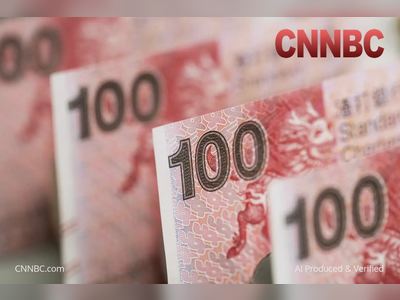Brazilian Congress Rejects Lula's Proposed Tax Increase on Financial Transactions
The Brazilian legislature votes against President Lula's initiative to raise taxes on financial transactions amid economic concerns.
In a significant legislative decision, the Brazilian Congress has voted against President Luiz Inácio Lula da Silva's proposal to increase taxes on financial transactions.
The proposal aimed to raise the tax rate on financial operations to generate additional revenue, estimated at approximately 200 billion Brazilian reals (around $39 billion) annually for social programs and infrastructure development.
However, the initiative faced substantial opposition from various political parties, citing potential negative impacts on economic growth and the financial market stability.
The financial transactions tax, known in Brazil as CPMF, was originally implemented in the early 1990s but was abolished in 2007 due to concerns regarding its effectiveness and impact on taxpayers.
Since taking office in January 2023, President Lula has emphasized the necessity of reforming the tax system to ensure economic equity while funding government initiatives aimed at combating poverty and enhancing social welfare.
During the voting process, legislators expressed fears that the proposed tax increase could deter investment in Brazil, particularly in the financial sector, which is crucial to the country's overall economic health.
The rejection of the tax increase is seen as a setback for Lula, who is navigating a complex political landscape characterized by a fragmented Congress where coalition-building is essential.
The decision has implications not only for Brazil's fiscal strategy but also highlights the challenges faced by the Lula administration in implementing its economic policies.
Following the vote, the government may need to explore alternative measures to secure funding for its ambitious social programs while maintaining economic stability amidst ongoing inflationary pressures.
This rejection comes at a time when Brazil is also grappling with inflation rates that have recently seen an uptick, raising concerns about the broader economic conditions.
Analysts continue to monitor the government's next steps in balancing fiscal responsibility with its social agenda as the political discourse evolves.
The proposal aimed to raise the tax rate on financial operations to generate additional revenue, estimated at approximately 200 billion Brazilian reals (around $39 billion) annually for social programs and infrastructure development.
However, the initiative faced substantial opposition from various political parties, citing potential negative impacts on economic growth and the financial market stability.
The financial transactions tax, known in Brazil as CPMF, was originally implemented in the early 1990s but was abolished in 2007 due to concerns regarding its effectiveness and impact on taxpayers.
Since taking office in January 2023, President Lula has emphasized the necessity of reforming the tax system to ensure economic equity while funding government initiatives aimed at combating poverty and enhancing social welfare.
During the voting process, legislators expressed fears that the proposed tax increase could deter investment in Brazil, particularly in the financial sector, which is crucial to the country's overall economic health.
The rejection of the tax increase is seen as a setback for Lula, who is navigating a complex political landscape characterized by a fragmented Congress where coalition-building is essential.
The decision has implications not only for Brazil's fiscal strategy but also highlights the challenges faced by the Lula administration in implementing its economic policies.
Following the vote, the government may need to explore alternative measures to secure funding for its ambitious social programs while maintaining economic stability amidst ongoing inflationary pressures.
This rejection comes at a time when Brazil is also grappling with inflation rates that have recently seen an uptick, raising concerns about the broader economic conditions.
Analysts continue to monitor the government's next steps in balancing fiscal responsibility with its social agenda as the political discourse evolves.











